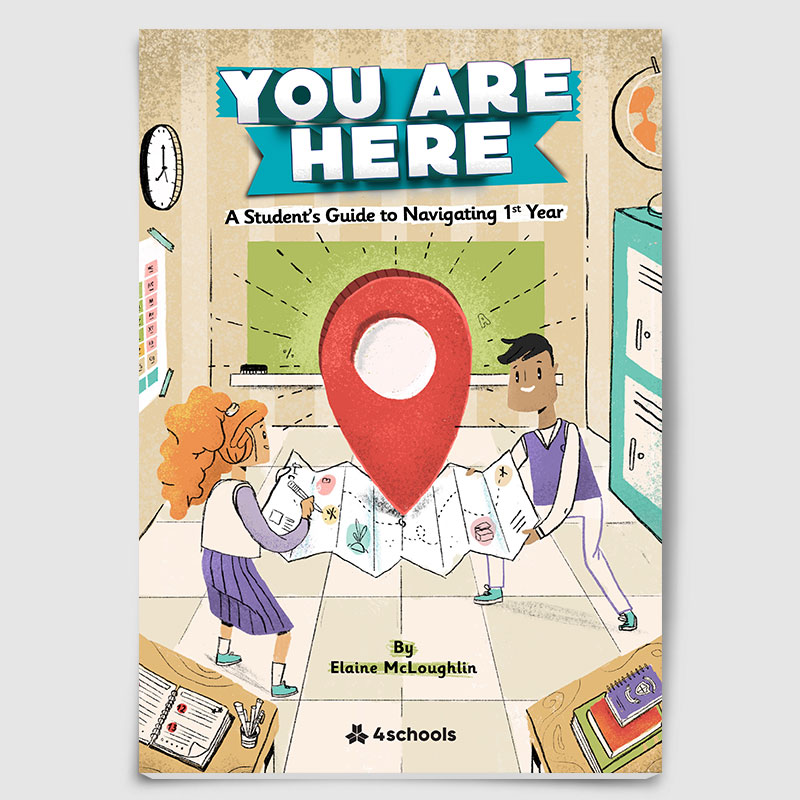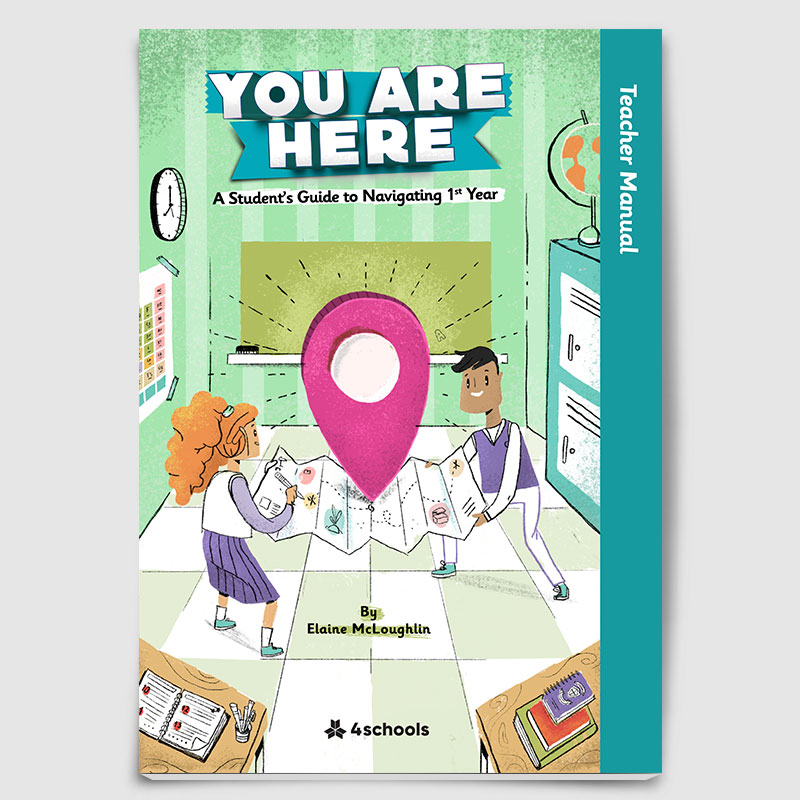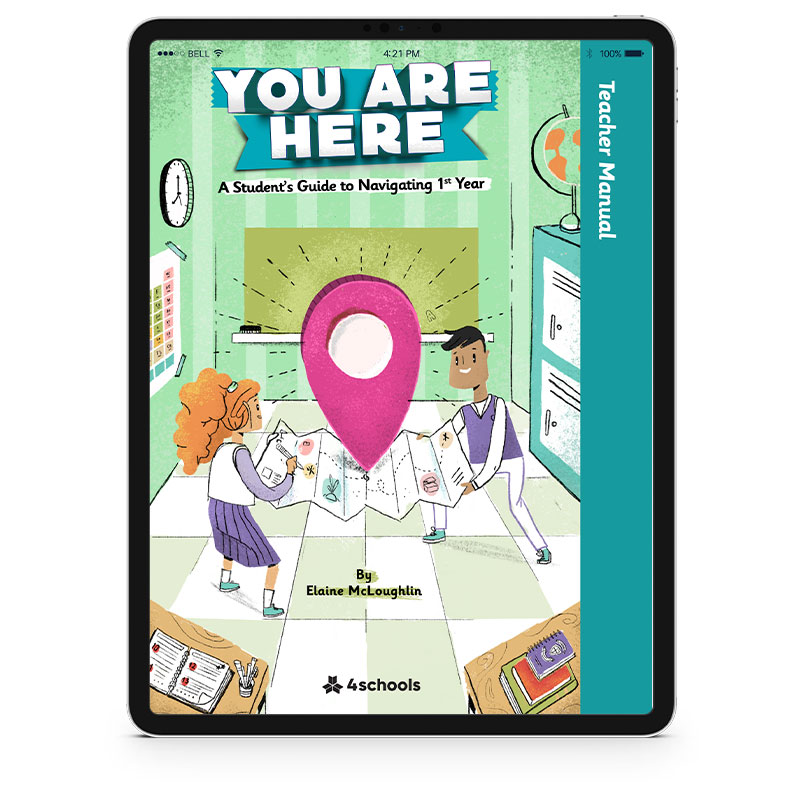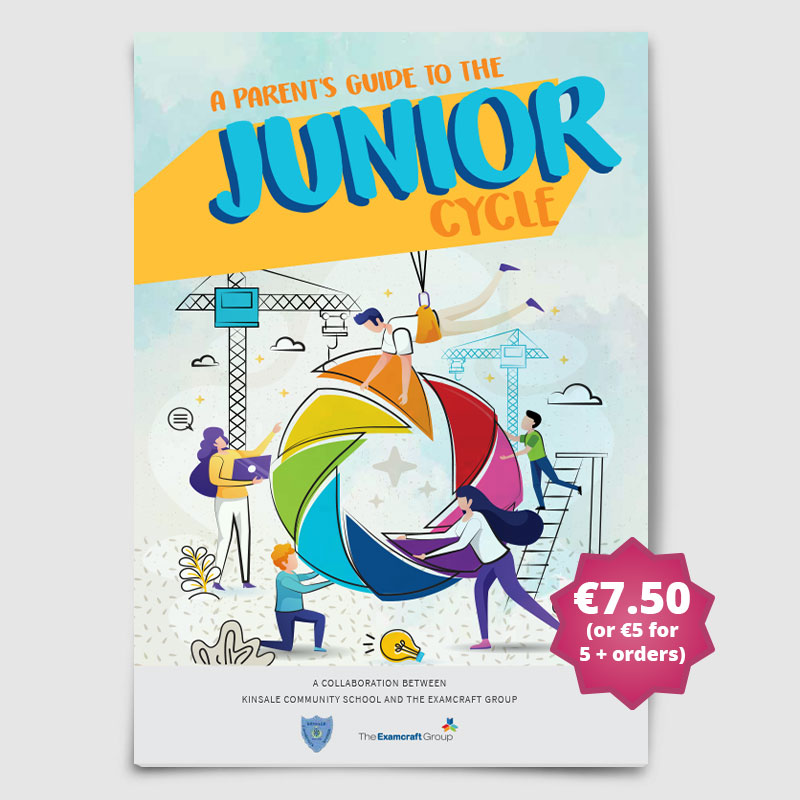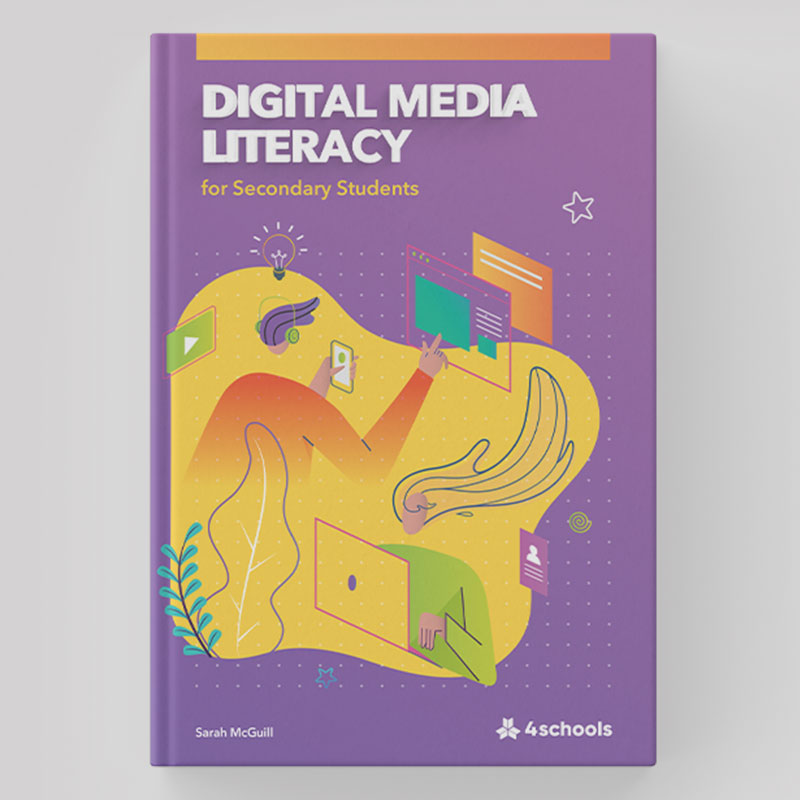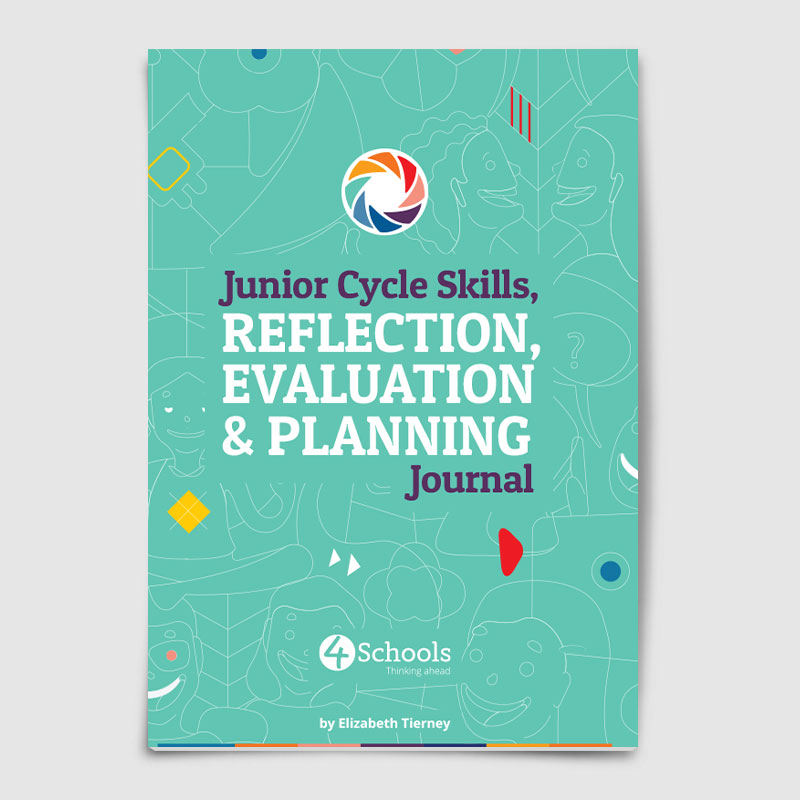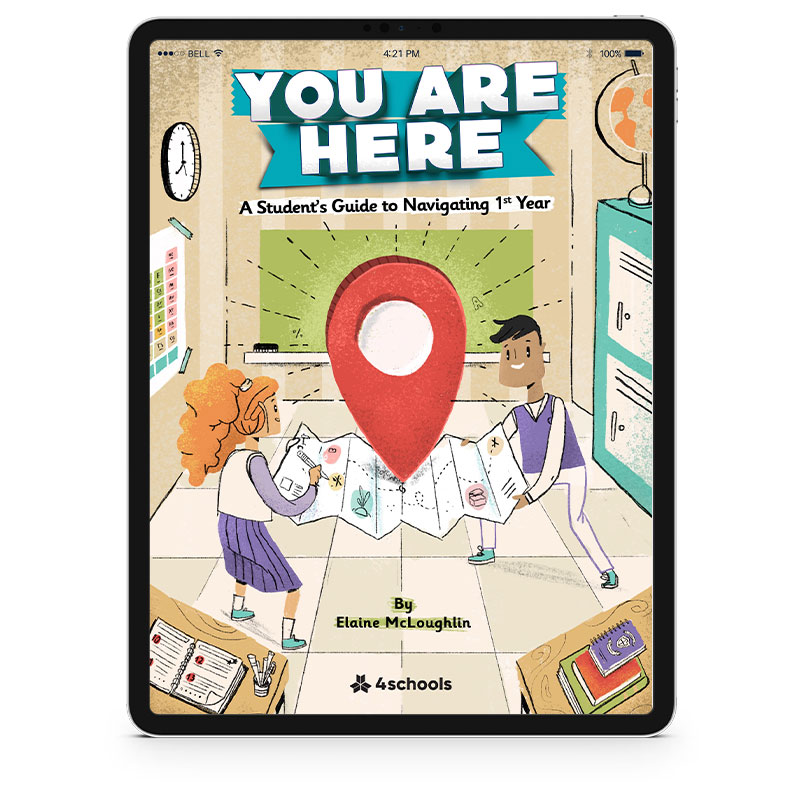
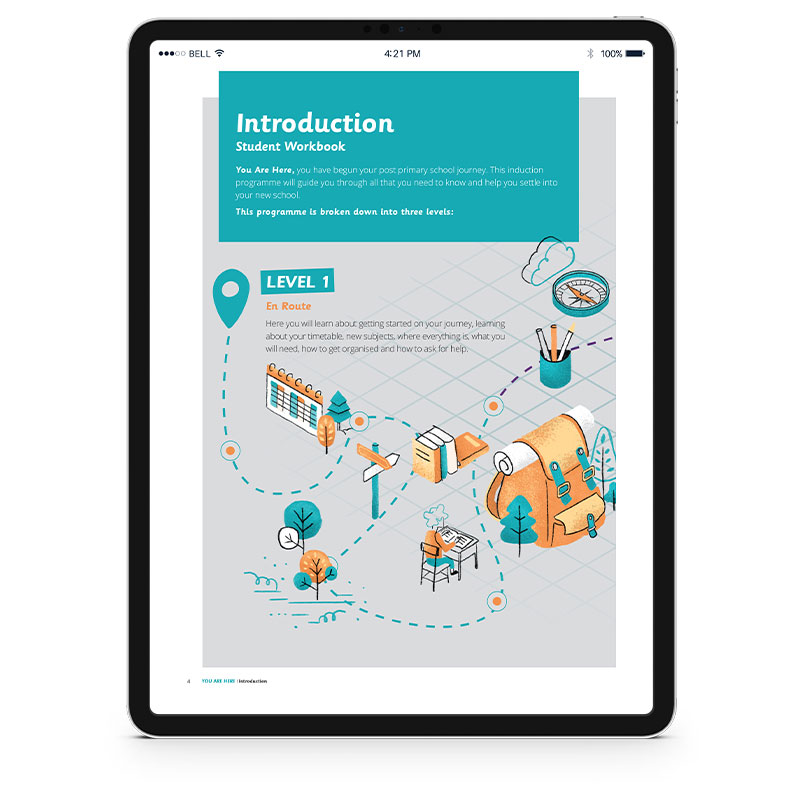
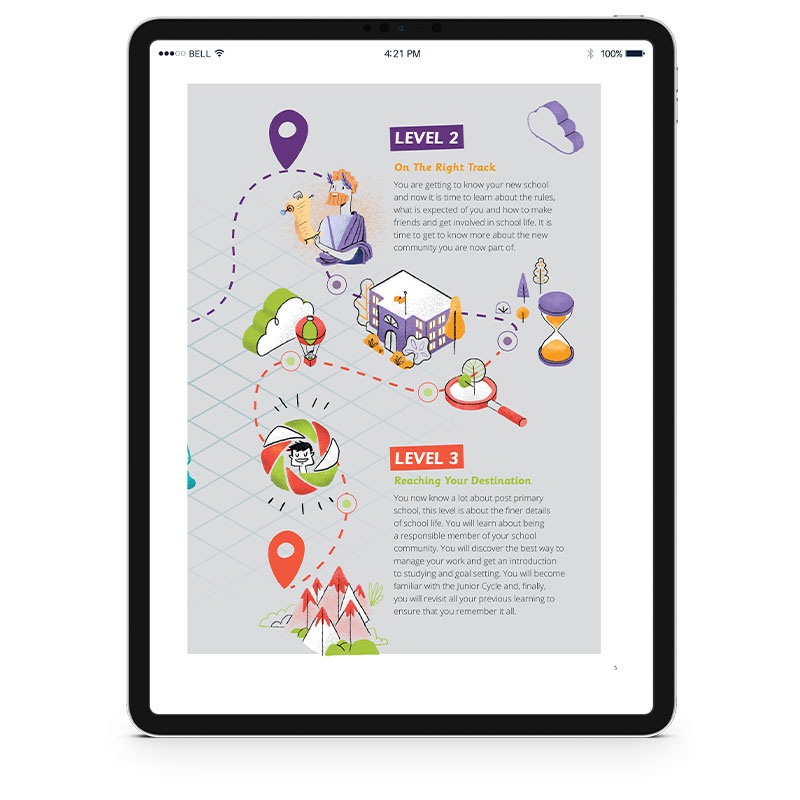
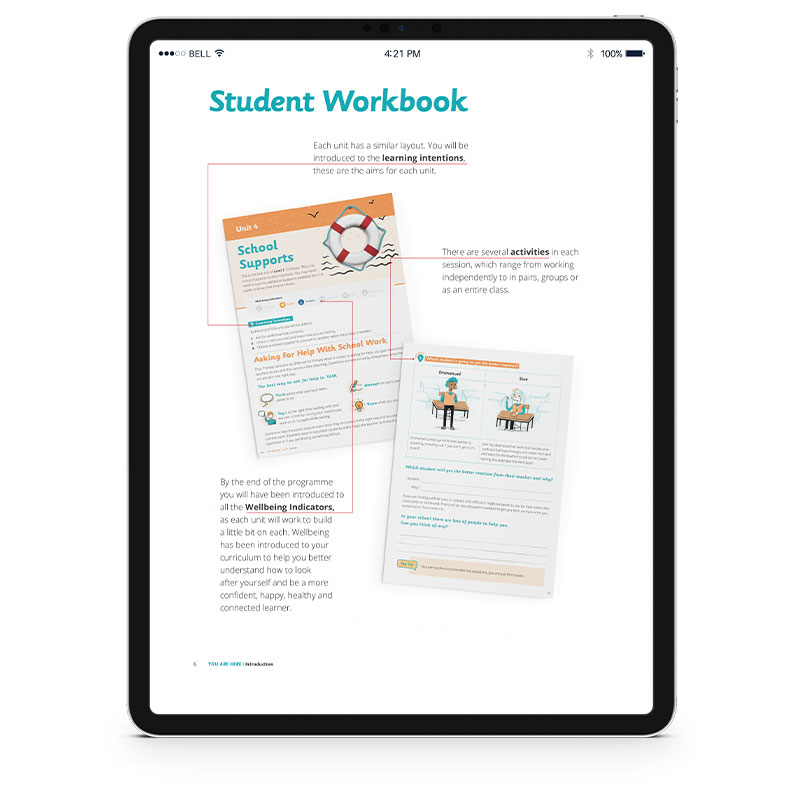
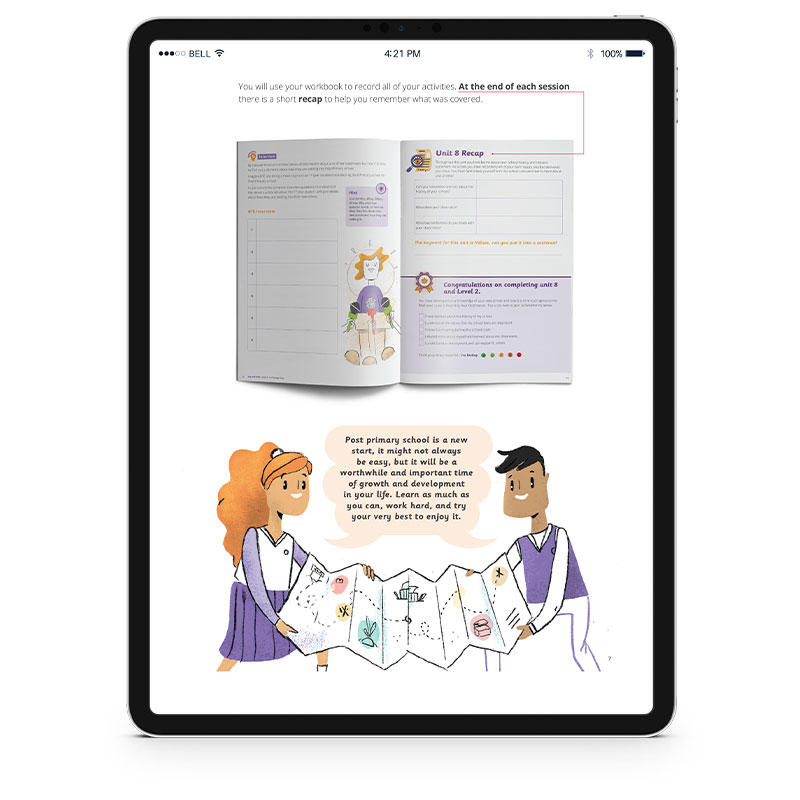
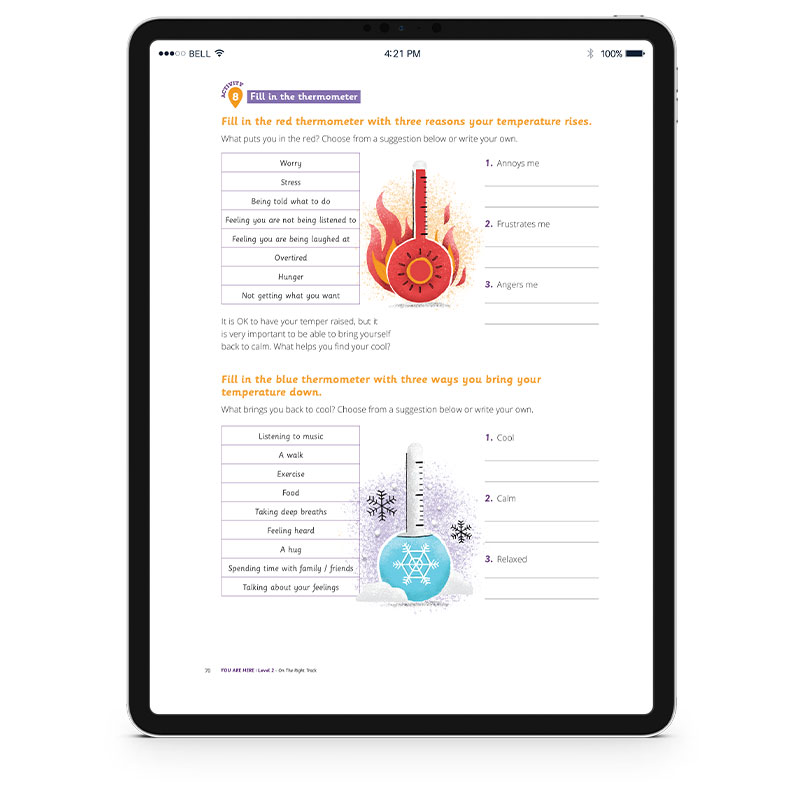
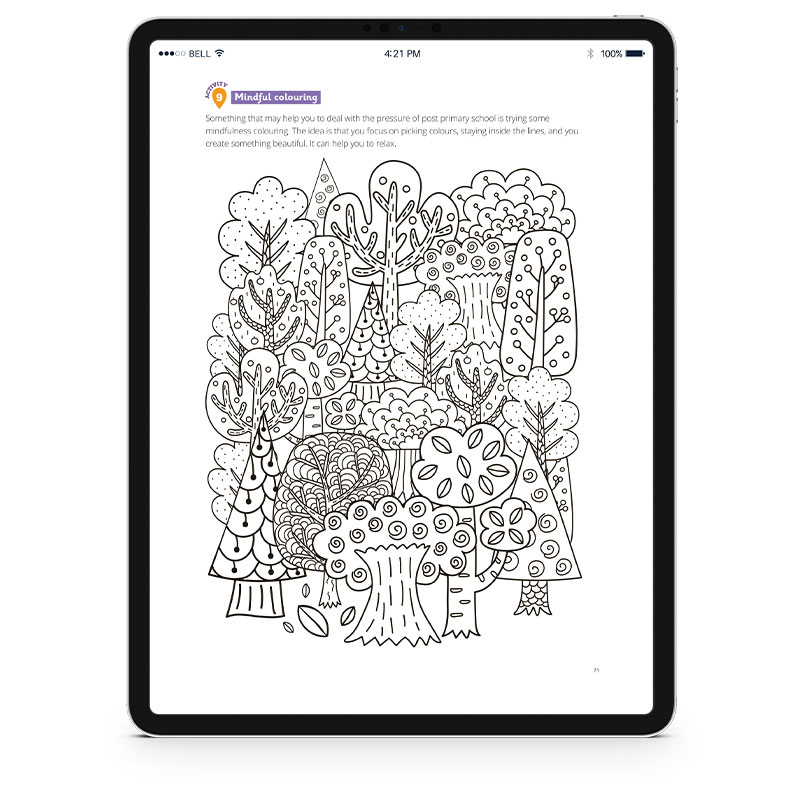
You Are Here - A Student's Guide to Navigating 1st Year (e-Book)
Starting post primary school can be an overwhelming time for incoming first year students.
You Are Here – A Student's Guide to Navigating 1st Year is designed to give new students a comprehensive start on their post primary school journey. The idea behind the programme is to pace and repeat the information they receive, dedicating time to settling them into their new school and making the transition through the induction process a positive experience.
An essential part of any Irish secondary school resource, this 'first year survival guide' aims to ensure new students are equipped for settling in with their fellow students, meeting other new students/teachers, and knowing how to act appropriately in school and at external events. Importantly, it ensures that your school delivers on its promise to create a welcoming environment, resulting in a structured, positive experience for students.
The programme includes an interactive student workbook, a detailed teacher manual, PowerPoint slides for each lesson and a full Appendix I.
Overview of the programme
The programme is broken down into three levels:
Level One – En Route
En Route is set around the initial days for the new first year student in school, learning the fundamentals such as understanding their timetable, finding their way around the school, getting organised and knowing how to ask for help and where to get support throughout this potentially anxious time.
Level Two – On the Right Track
On the Right Track focuses on the expectations the school has for students around respect, rules, attendance and punctuality. At this point it is also important to spend time letting students get to know one another, and supporting students in making friends within their class group. They will learn about extra-curricular activities in their school and how to avoid conflict.
Level Three - Reaching Your Destination
By now, the majority of w students will have settled into secondary school. Reaching Your Destination guides students in becoming responsible members of their school community. One of the biggest hurdles for first years is learning how to manage their work.
In this section, students will discover the best way to do this, with an introduction to studying, goal setting and exam preparation. Students will also learn about how their school communicates with home and how to achieve the best reports. They will become familiar with the Junior Cycle and the expectations for them over the next three years.
Reviewing the Journey
Reviewing the Journey is suggested for a post-midterm and post-Christmas review. Returning from breaks, new secondary school students can lose focus in their approach to their work and their behaviour. It can be a great opportunity to revisit the key induction points and ensure they are embedded.
Recommended guide to using the programme in your school
The intention of the programme is to deliver 24 hours of induction, which can be taken out of the 400 hours of wellbeing that are a part of the Junior Cycle curriculum.
Each unit takes approximately 2 hours to deliver. This can be completed in one class or broken down into two 1-hour classes or three 40-minute classes.
There are many ways that your school may plan to deliver this induction programme to help offer practical advice for students. It is set up to allow for flexibility and to cater for the new student and school needs of your school. Each unit begins with an ice breaker to help set the tone for first year students, and breaks can be added if necessary.

